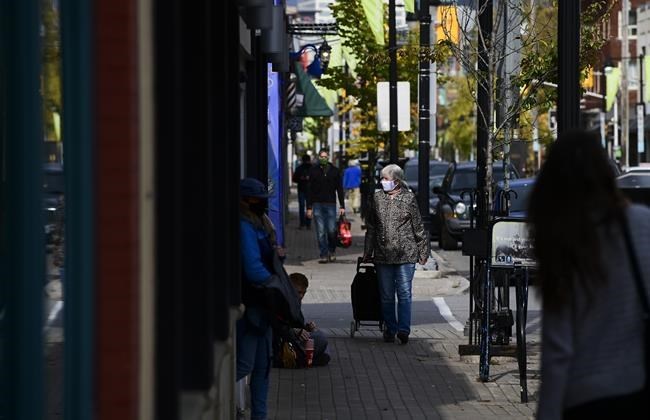OTTAWA — Small businesses in Canada have received less than 10 per cent of the financial aid they were promised to help them offset the costs of the national price on carbon emissions.
When the federal Liberals laid out their carbon price plan in 2018, they promised it would be revenue neutral, with 90 per cent of the proceeds from the consumer fuel levy returned to households through cash rebates.
Small and medium-sized businesses were to get seven per cent of the revenues to help fund projects to lower their use of fossil fuels, both curbing their greenhouse-gas emissions and their carbon-price costs.
The government's annual reports on carbon pricing revenues show that during the first three years of federal carbon pricing, between April 2019 and March 2022, Ottawa collected more than $12.8 billion from the carbon levy.
Nearly 89 per cent of it — $11.4 billion — has been returned to families, and on average, the vast majority of Canadians have received more in rebates than they paid for the carbon price.
But as of April 2022, only $89 million had been distributed to help small businesses invest in projects that would lower their fossil-fuel consumption levels. Seven per cent of the revenues would have amounted to 10 times that amount.
"Despite the promises made, close to zero has been returned to small business," said Jasmin Guenette, the vice-president of national affairs for the Canadian Federation of Independent Business.
The levy is the price everyone but big industrial emitters pays every time they buy fossil fuels, such as gasoline, natural gas, diesel or propane. Big emitters pay the price on a portion of their actual emissions.
Those rules only apply in provinces and territories that don't have comparable programs. Initially, the levy was charged in New Brunswick, Ontario, Manitoba and Saskatchewan, but in 2020 Alberta was added and New Brunswick dropped out.
The government designed the rebates assuming most businesses would pass on the costs by raising prices. Guenette said a survey of its members suggests more than half said they couldn't do that.
Guenette also said his organization's analysis suggests smaller businesses contribute about half the revenues collected under the carbon levy. He could not explain the methodology used to reach that figure, but said the government hasn't challenged their math since the analysis was first made public in 2019.
The Canadian Press included the federation's claim in questions about the carbon price and the small business rebate programs posed to Environment Minister Steven Guilbeault's office Tuesday. The written response did not specifically address the 50 per cent figure.
Instead the statement said the financial hit to small business is offset through "targeted programs."
"The fight against climate change is in all our interests and we continue to work to ensure the revenues help farmers, small business owners and others find the energy savings to make them both profitable and environmentally responsible," the statement said.
But the first of those programs established were all cancelled by year three because of difficulty getting money out the door.
While the household rebates remain in place, and increase each year in line with the carbon price, the promised programs for the other 10 per cent of revenues are being completely overhauled.
A new refundable tax credit for farmers was promised in 2021, though still hasn't fully rolled out.
The 2022 budget also promised a new retrofit program for businesses, saying $2.5 billion will be funnelled to businesses in Alberta, Saskatchewan, Manitoba and Ontario by 2025. Additional funds will be added to the pool after the four Atlantic provinces join the federal carbon levy in July.
The federation's survey suggested most of its members don't like carbon pricing, but a majority are fine with having the costs offset through retrofit grants.
Guenette, however, said the new retrofit program will only work if the application process isn't cumbersome, companies don't have to spend a ton of money to qualify and it applies to a wide number of firms.
The program is supposed to be restricted to companies that are "emissions intensive" — meaning they have a high rate of emissions for what they produce — or heavily exposed to international competition.
However, the government is still consulting on who specifically will be eligible, and who will administer the money.
This report by The Canadian Press was first published April 5, 2023.
Mia Rabson, The Canadian Press



